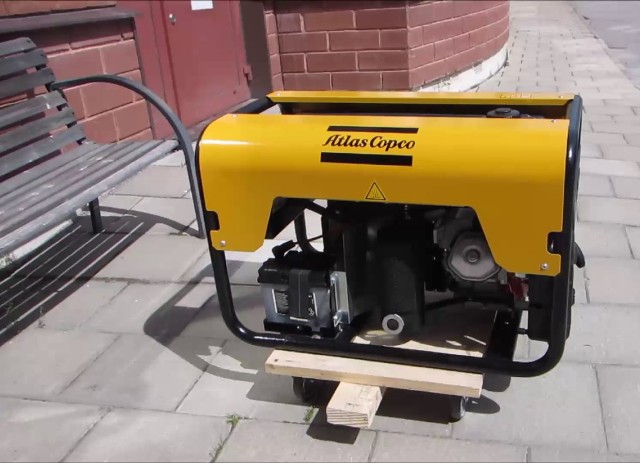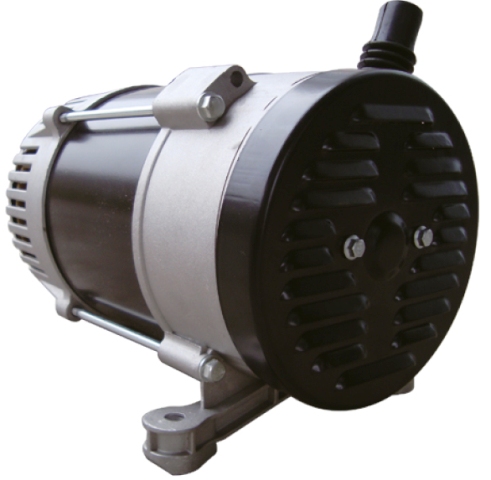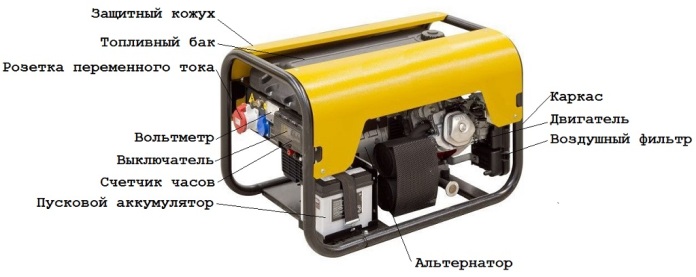Categories: Featured Articles » Autonomous power supply
Number of views: 2957
Comments on the article: 0
Diesel generator - device and principle of operation
When acquiring a diesel generator for one purpose or another, it is important to understand the principle of its operation, because if you don’t understand what you are dealing with, you can accidentally lose sight of the symptoms of malfunctions and simply violate the operating rules of this unit.
The most common diesel generator (which is suitable for a home or a small enterprise as a source of backup power supply) consists of several main units installed inside the frame, often protected by a noise-absorbing casing: a fuel tank, a diesel engine, a manual starter, an electronic automatic control and voltage stabilization unit alternator (directly alternator), battery with charger. In addition, engine lubrication and cooling systems, as well as an exhaust system, are implemented within the diesel generator frame.
The principle of electricity production in this type of generator is based on the use of a diesel engine in combination with an alternator. The diesel overhead valve internal combustion engine allows for reliable mechanical rotation of the generator rotor without excessive noise, oversized heaps and excess exhaust, in comparison with other solutions for liquid fuel.
The energy of the fuel burned here is first converted into the energy of the expanding gas, which presses the pistons, and they rotate the crankshaft. So the chemical energy of the fuel is converted into mechanical energy of rotation of the crankshaft. The crankshaft, in turn, transfers the rotation to the rotor of the generator.

The alternator (or alternator) can be synchronous or asynchronous, inside its body there is a rotating rotor (with brushes or without brushes) and a fixed stator with a winding. The magnetic field of the rotating rotor crosses the stator winding, inducing an EMF in it, thus creating an electric voltage and current with the parameters necessary for the consumer.
It is believed that a synchronous alternator is more suitable for supplying powerful loads, and for consumers sensitive to voltage drops, such as refrigerators, an asynchronous alternator with a better ability to maintain a constant output voltage is more suitable.

So, the diesel internal combustion engine transmits rotation to the rotor of the alternator. And for the normal operation of the internal combustion engine, it is equipped with a battery with a charger, a manual starter, a lubrication system with a pipeline and a filter, a cooling system, as well as a fuel supply system with a pump, pipeline and fireboxes. Large industrial models of diesel generators additionally have an engine thermal support system at an acceptable level, as well as an electricity distribution system.
The cooling system in a modern diesel generator can be liquid or air. The simplest household generators traditionally have air cooling, while industrial models are equipped with liquid. There are air supply systems with and without turbocharging.
The operating time of the diesel generator is limited by the fuel supply in the fuel tank and depends on the power taken from the generator. Typically, fuel consumption for diesel generators of different models lies in the range from 6 to 50 liters per hour, depending again on the power taken and the specific unit rating.
The output voltage range characteristic of a mobile diesel generator is from 200 to 400 volts, and the output voltage can be either single-phase or three-phase. More efficient three-phase versions have a nominal value of 380 volts, single-phase versions have 220 volts.Mobile diesel generators are available at rated powers from 1.5 to 20 kW. Industrial - from 20 to 100 and more kW.
See also on the topic:Ten Frequently Asked Questions When Buying a Home Generator
See also at i.electricianexp.com
:

